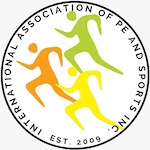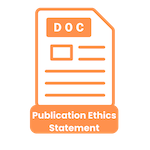Impact of the SWOT Strategy and Mind Maps on Teaching Chess in Developing Certain Mental Abilities and Reflective Thinking in Females Aged 14–16 Years
Abstract
The study aims to develop two educational programs based on the SWOT matrix and mind mapping to teach chess tactics and examine these programs' impact on enhancing specific mental abilities and reflective thinking. Due to the experimental approach being appropriate for the study's nature, the researcher used it. Academically talented first-year intermediate female students from five different schools in Mosul made up the research population. The total number of students was 560. Al-Mosul High School was randomly selected to conduct the main experiment. The school included 130 students distributed across three classes: Class (A) with 40 students, Class (B) with 45 students, and Class (C) with 45 students. Class (C) was designated the first group (experimental) through a lottery system, taught using the SWOT matrix. Class (B) was defined as the second experimental group taught using the mind mapping strategy. Class (A) served as the control group, which was taught using the traditional method. Meanwhile, Al-Hadbaa Secondary School was used to conduct the pilot experiments. The researcher adopted an equivalent group design. The instructional lessons for the three research groups lasted for (20) instructional units, with two units per week, over a duration of (10) weeks. The statistical analysis was conducted using the various methods. According to the findings, students in the first experimental group—who were instructed using the SWOT matrix—performed better than those in the second experimental group and the control group in every area of attention and associated times. Additionally, the students in the second group (experimental), who were taught using mind mapping, outperformed the students in the first experimental group and the control group in all reflective thinking skills
References
Al-Khalidi, A. M. (2008). The psychology of individual differences and intellectual excellence (2nd ed.). Amman, Jordan: Dar Wael for Publishing.
Al-Khawaldeh, M. M. (2007). Popular play among children and its educational significance in developing their personalities (2nd ed.). Amman: Dar Al-Masirah for Publishing and Distribution.
Al-Mashharawi, A. A. (2009). Reflective thinking and its relationship to academic achievement and thinking styles among students at Al-Azhar University in Gaza [Unpublished master's thesis]. Al-Azhar University, Gaza.
Al-Qatamin, A. (2002). Strategic planning in public education institutions – An analytical and applied study. Journal of Economic and Administrative Sciences, 18(2), Mu’tah University.
Al-Rubaie, H. M. (2016). Evaluating university performance using the SWOT matrix: An applied study [Unpublished master's thesis]
Al-Taie, M. G. (2021). The effect of two educational programs for strategic thinking techniques in teaching chess on developing some mental abilities and reflective thinking for the age group (13–14) years [Unpublished master's thesis]. University of Mosul, Iraq.
Amer, T. A.-R. (2015). Mind maps and learning skills (your path to building smart ideas). Cairo, Egypt: Arab Group for Training and Publishing.
Boon, R. T., Burke, M. D., Fore, C., & Spencer, V. G. (2006). The impact of cognitive organizers and technology-based practices on student success in secondary social studies classrooms. Journal of Special Education Technology, 21(1). https://doi.org/10.1177/016264340602100103
Boon, R. T., Fore, C., & Rasheed, S. (2007). Students’ attitudes and perceptions toward technology-based applications and guided notes instruction in high school world history classrooms. Reading Improvement, 44(1), 23–31.
Georges, M., & Brown, S. C. (2010). Cognitive addition developmental. Missouri: Academic Press.
Heba, Z. M., & Al-Sayed, M. A. (2016). Environmental analysis using the SWOT model in education – Its concept and application mechanisms. Journal of Educational Sciences, 24(4, Part 1), [pages]. Cairo University.
Kaddour, K. (2018). The effect of playing and practicing chess on developing strategic thinking and some cognitive abilities in football players under 15 years old [Unpublished master’s thesis]. Abdelhamid Ben Badis University – Mostaganem, Algeria.
Mackinnon, G. R. (2006). Contentious issue in science education: Building critical thinking patterns through two-dimensional concept mapping. Journal of Educational Multimedia and Hypermedia, 15(4), 433–445.
Mustafa, S. (2014). The effect of a proposed training program to develop attention concentration in students aged 10–12 during physical education lessons [Unpublished master’s thesis]. Tishreen University, Syria.
Safar, A. H. (2013). Mind maps and their applications: A descriptive analytical reference study. Journal of Humanities, (39). Algeria.
Tergini, S. (2015). The role of strategic thinking in activating the creative capacities of the organization: A case study of the Sidal Group [Unpublished doctoral dissertation]. Mohamed Khider University of Biskra, Algeria.

This work is licensed under a Creative Commons Attribution 4.0 International License.

















